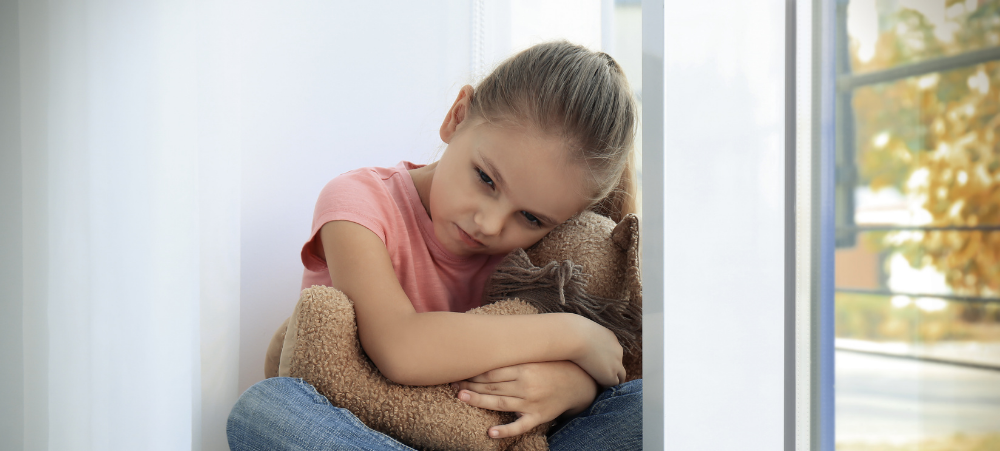It’s no great secret that we want to keep our kids safe and raise them in a supportive environment. Unfortunately, this is easier said than done. Our sons and daughters are growing up in a world that is full of lurking threats that range from anywhere from predators to cyberbullies. These pitfalls make our parenting jobs more arduous, especially when it comes to unseen dangers like emotional abuse.
Unlike physical abuse, emotional abuse leaves no marks or bruises which makes detecting it difficult.Emotional abuse, like other forms of abuse, can cause degradation or take a child’s pride away. This can take the form of threats, rejection, ignoring, isolating, criticism, corrupting, swearing, and lying or any verbal patterns that harms a child’s emotional well-being, development, or self-worth. Unfortunately, emotional abuse often involves an ongoing relationship and occurs over time, and is not just one isolated incident.
The Prevalence of Emotional Abuse
For years, experts and researchers have been plagued with problems about defining emotional abuse and tracking its prevalence.The precise numbers of children suffering this abuse is hard to know, because many incidents go unreported or fly under the radar of caregivers, parents, or the authorities. Occasionally, there are cultural factors that influence how a parent disciplines or interacts with a child. For example, there is solid evidence from the World Health Organization that found most cultures yell at children, while cursing, calling names, and threatening abandonment vary greatly around the world.
Childline receives around 4,827 calls from kids who were emotional abuse victims. This data lets us know that emotional abuse is a very real threat to our kids. In fact, some experts suggest that emotional abuse appears to be the the most prevalent form of maltreatment and abuse of children. There are a variety of reasons suspected of causing kids to experience emotional abuse that include: poverty, unemployment, overcrowding in the home, substance abuse, alcohol abuse, and more. But, far too often kids are vulnerable just because they are children and easily become scapegoats for an adult’s anger or frustration.
Warning Signs of Emotional Abuse in Kids
Like we mentioned earlier, recognising emotional abuse is difficult. That makes it essential that we know what behaviours to look for so we can put a halt to the verbal abuse. Listed below are possible warning signs. of emotional abuse kids:
- Withdrawal from activities or friends
- Poor concentration
- Bed-wetting
- Difficulty sleeping
- Changes in eating habits
- Increased anger or aggression
- Acting out
- Sadness
- Feeling ashamed
- Obsessed over doing things a certain way or meeting expectations
- Fear
- Anxiety
- Suicidal or self-harming behaviours
How to Protect Your Kids From Emotional Abuse
Even though this topic is frightening, there are a few simple steps we can take to protect our kids from suffering emotional abuse. To help keep our boys and girls safe, scroll through the list of safety suggestions:
- Believe children when they tell you they are experiencing emotional abuse.Listen, reassure them, and report the abuse to the right authorities. Good support is vital when it comes to giving kids hope and encouragement while they rebuild their lives, ability to trust, and move forward.
- Find child caregivers you trust.It’s obvious that we can’t always be with our kids. Reduce the chance of emotional abuse by finding a reliable caregiver you trust.
- Begin ongoing conversations about the power of words.All children, and even a few adults, need to be reminded how words can hurt. This will open the lines of communication and encourage kids to share when they have experienced emotional abuse.
- Teach relaxation techniques to combat anxiety. Inevitably, there will be times when a child encounters unkind words or mean people. Whether it’s a bully at school or a narcissistic boss at work, teach kids coping methods, deep breathing, or yoga moves to combat emotional abuse.
- Model healthy relationships with partners, friends, family, and children.We are our child’s first teachers and we must lead by a good example. If we want our kids to respect themselves and be in healthy relationships, we must pave the way by showing them acceptable ways for talking about our feelings, communicating, disagreeing, saying we are sorry, and making-up after an argument.
- Avoid name calling, harsh judgments, and create a safe home environment. As parents, we need to be the safe place to fall. This doesn’t mean we can’t discipline or enforce house rules. However, we need to be mindful of how our words and phrases can impact our child’s development, either setting them up for a lifetime of grief or acceptance.
- HOW TO PROTECT YOUR CHILD FROM EMOTIONAL ABUSE - May 30, 2022
- 8 Kid-Friendly Yoga Poses for Peaceful Mornings - November 9, 2016
- Digital Parenting Challenges - May 4, 2016





